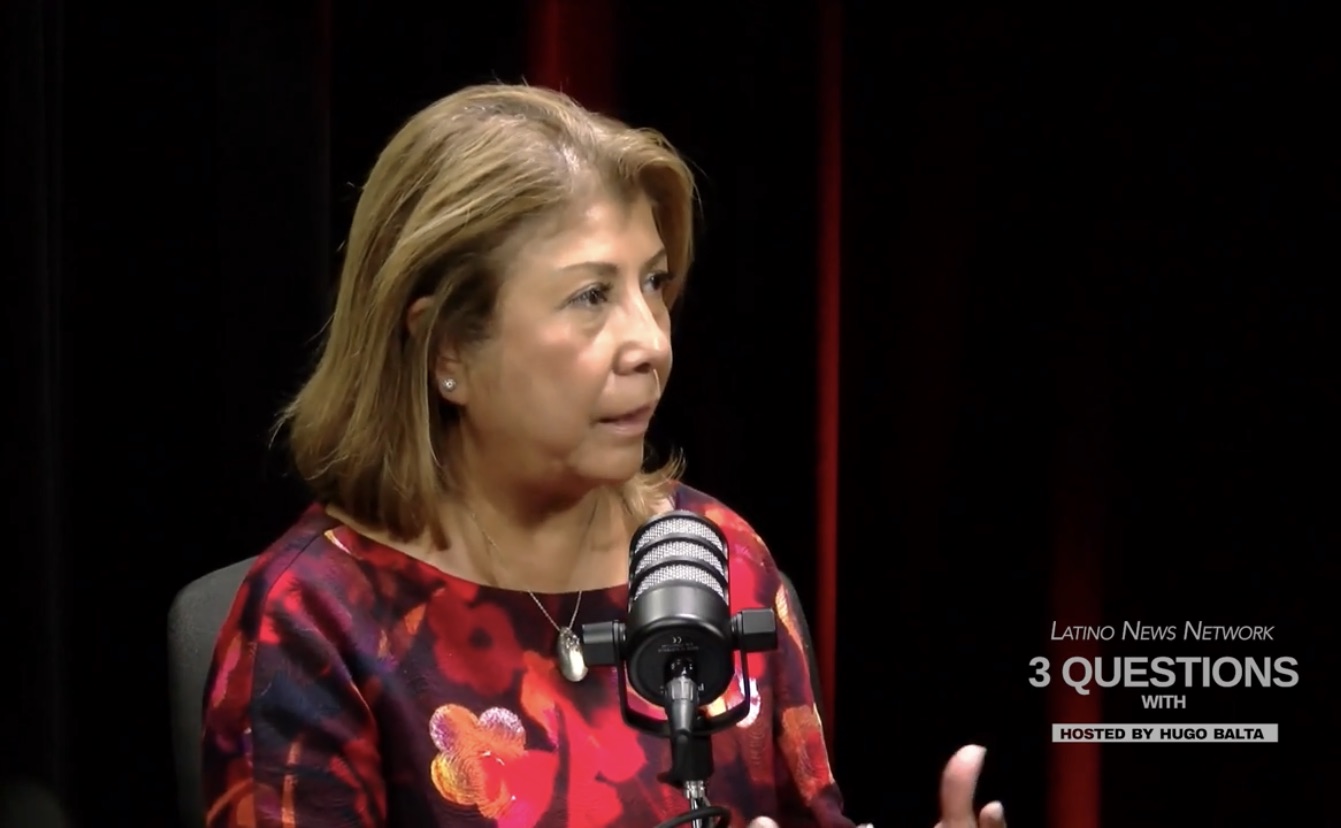Earlier this year, Governor J.B. Pritzker was heavily criticized for limiting enrollment to two state-funded health insurance programs—some of the only health insurance options for low-income undocumented people in Illinois.
Supporters of the move say the Medicaid-style programs created in 2020, partly to help those most in need due to the COVID-19 emergency, are just too expensive, and the state cannot afford the programs.
Advocates like Esther Corpuz, CEO of Alivio Medical Center, argue it is not just immoral to deny health care to those who need it the most but also shortsighted and ultimately fiscally unsound.
Alivio Medical Center is a bilingual, bicultural organization committed to providing access to quality, cost-effective health care to the Hispanic community, the uninsured, and the underinsured.
Corpuz was a guest on the program “3 Questions With…” hosted by Hugo Balta, publisher of IL Latino News.
Corpuz shared Alivio Medical Center’s mission of providing well-coordinated, integrated, comprehensive, culturally sensitive, and quality services. “We’re the medical home to over 40,000 patients in the community, folks that have a lack of access to healthcare,” she said. “95 percent of them (patients) have either no insurance or limited insurance.”
Corpuz spoke about a new mental wellness program focused on youth. “She treats folks with gender identity issues,” Corpuz said about Dr. Rebekah Fenton, Adolescent Medicine Physician. “She works with eating disorders, children that are hurting themselves…she specializes in emotional health for adolescents.”
The Healthy Illinois Campaign, an advocacy group Corpuz leads, condemned the Pritzker administration’s move to limit enrollment to two state-funded health insurance programs that were critical in keeping people safe during the COVID emergency. The group stated that “by slashing live-saving health coverage for Illinois immigrants, the governor is turning his back on the communities he claims Illinois welcomes and that he is aligning himself with anti-immigrant Republicans around the country.”
“They claim that it’s a budget issue. We understand that this is an expensive program, but if you invest on the front end providing preventative care, you’re going to have a healthier community,” she said. Corpuz argues that it is more cost-effective to provide screenings (and treat them at that early stage if, say, they’re diagnosed with cancer) than later on. “Health is a human right,” she said.
Corpuz credits her father for her interest in healthcare. He died of heart disease when he was 42 years old. “My dad would welcome new arrivals from Mexico into our home and give them jobs,” she said. “Both my parents always taught us that we have to give back to the community.” Corpuz shared that one of the things that drew her to Alivio was the opportunity to return to her roots in Pilsen and serve the population she grew up with.
“3 Questions With…” is co-produced by the Latino News Network (LNN), an independent multimedia digital news outlet with local newsrooms nationwide, including IL Latino News and CAN TV, Chicago’s hub for community-centric news, hyperlocal stories, and educational resources.
